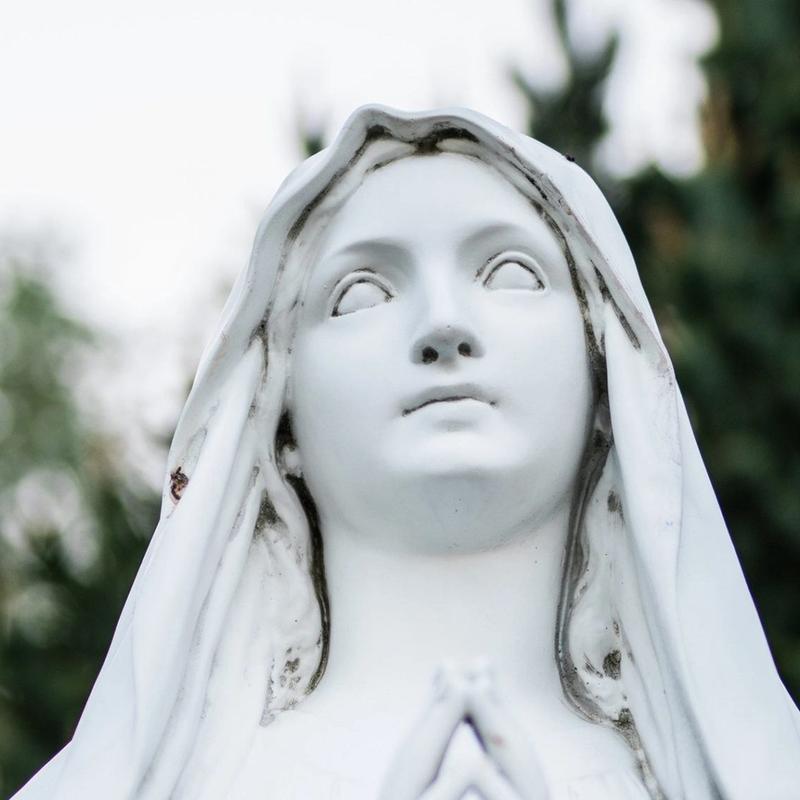The Virgin Mary played a very important role in the Christmas story, one for which she would be forever blessed (Lk. 1:48). She is the Mother of God, a title which followers of Jesus began using very early to emphasize the identity of the Word made flesh. You may be wondering, “How on earth is it possible for God to have a mom?” It is a divine mystery but affirming Mary as the God-Bearer or Theotokos(in Greek) has always been a mark of orthodox Christianity. Those who denied this title in the ancient church (some preferred to call her the Christotokos, or Christ-bearer), were actually condemned as heretics.
If anyone does not believe that holy Mary is the mother of God, he is severed from the Godhead. If anyone should assert that he passed through the Virgin as through a channel, and was not at once divinely and humanly formed in her (divinely, because without the intervention of a man; humanly, because in accordance with the laws of gestation), he is in like manner godless. If any assert that the manhood was formed and afterward was clothed with the Godhead, he too is to be condemned…" -Gregory Nazianzus To Cledonius against Apollinaris (Epistle 101)
If anyone does not confess that Emmanuel is God in truth, and therefore the holy Virgin is Theotokos – for she bore in the flesh the Word of God become flesh – let him be anathema" – From the third letter of Cyril to Nestorius
In order to understand this crucial doctrine and the reason it was treated as a litmus test for orthodoxy, we need to unpack the how, and the why behind it.
First, it’s important we understand that Mary is not the God-Bearer in the sense that Jesus took his divine nature from her. He is the eternal Son of God, begotten of the Father before all worlds. As the eternally begotten Son, he preexisted Mary, and she owes her existence to him (Jn. 1:3)! The eighth century Syrian Priest, John of Damascus, put it like this:
We do not say that God was born of her in the sense that the divinity of the Word has its beginning of being from her, but in the sense that God the Word himself, who was timelessly begotten of the Father before the ages and exists without beginning and eternally with the Father and the Holy Ghost, did in the last days come for our salvation to dwell in her womb and of her was, without undergoing change, made flesh and born… (De Fide III.12)
When the angel in Luke’s Gospel described the how to Mary, he explained, “The Holy Spirit will come upon you, and the power of the Most High will overshadow you; therefore the child to be born will be called holy – the Son of God.” (Lk. 1:35) The language of overshadowing is evocative of the scene in Exodus 40:35 where God’s glory overshadowed the tabernacle (the same Greek verb for "overshadow" is used in both passages). The angel was suggesting that Mary’s womb would be a temporary temple, the place where God would gestate for nine months!
Today, when many Christians hear the title “Mother of God” they shudder because they assume it means that Mary preexisted Jesus, or that the divine Son had his beginning through her. The wonder of the incarnation is that the Son of God from all eternity was born again from the womb of the Virgin. This divine Person, the Word, was made flesh by taking flesh from Mary. Rather than lose something in the incarnation, God the Word took on our humanity. To deny that Mary is God’s mom is to deny the reality of the incarnation, and with it, our salvation. This gets us to the why behind the title.
The affirmation of Mary as Theotokos wasn’t so much to magnify her but to magnify Jesus. It emphasized that it was truly God with us. The beautiful mystery of the incarnation is that God came down to us and sanctified humanity by uniting it to his Person. Flesh was not united to a creature, but to the Creator himself. Thus, the affirmation was (and still is) important because it tells us about Jesus, our Savior.
In the end, that’s what Mary wants to do for us, too. She knew that the child in her womb was the blessed deliverer of God’s people (Lk. 1:31-33). In humility, she rejoiced in God her savior (Lk. 1:47), making much of him. The temporary temple of her womb housed the overshadowing glory of humanity's restoration, and the savior she rejoiced in is the savior we can rejoice in too. Because God has a mom, we have a Father in God and an elder brother in Jesus Christ. That’s why we celebrate during Christmas!






